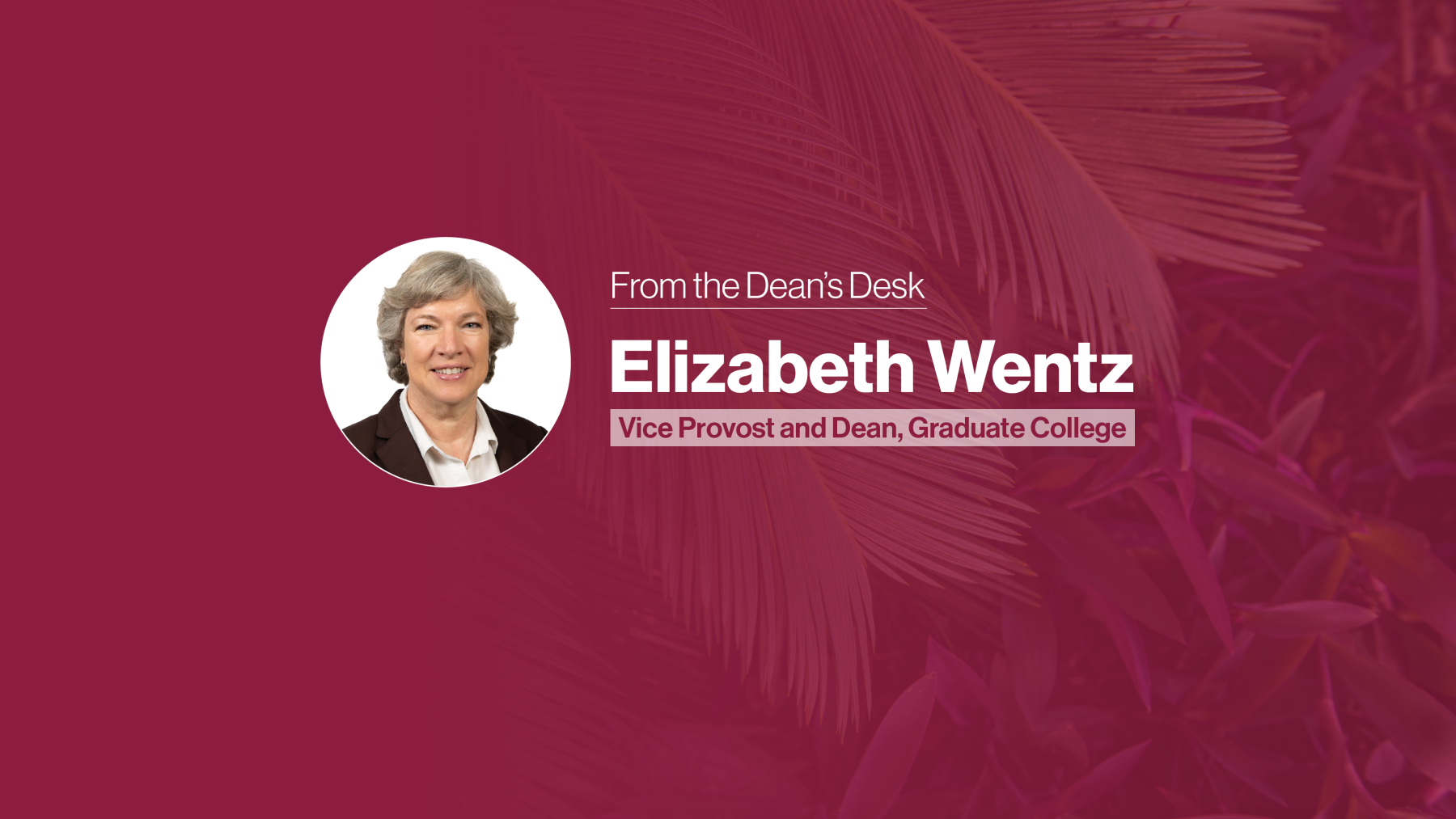
The future of graduate education depends on you
As we celebrate another season of academic achievement, I want to extend my heartfelt congratulations to our graduating students and a warm acknowledgment to those continuing their journeys. This moment is not just a milestone — it’s a transition into a new phase of contribution, leadership and possibility.
Throughout this year’s Dean’s Desk series, I’ve explored how 21st-century graduate education must evolve to meet the scale and complexity of today’s global grand challenges. We’ve examined new and flexible entryways into graduate education, the importance of student agency in curriculum design and how team-based approaches build crucial skills beyond academic expertise. However, none of these innovations will endure if we don’t stay connected to those who have lived them. That’s why engagement with graduate alumni and community members is essential.
For graduate education to remain responsive and relevant in a rapidly changing world, it must be shaped by the real-world experiences of those who have moved beyond the classroom and into leadership, research, service, entrepreneurship, and advocacy. Without these voices, our understanding of curriculum needs, leadership development and career preparation risks becoming outdated. In response, we engage. In many academic colleges, this kind of engagement is a dean’s circle or advisory board — groups of alumni and supporters who contribute resources, insight and guidance. These groups often convene around shared events like Homecoming or donor gatherings, providing opportunities to hear about new initiatives and share real-world perspectives. These relationships build critical bridges between higher education and the broader community.
At the Graduate College, our model of engagement looks a bit different. Because graduate students pursue their degrees primarily through academic colleges and programs, their direct contact with the Graduate College can sometimes feel peripheral. Nevertheless, we provide essential cross-cutting support: funding, fellowships, professional development, academic progress, and community building. Our engagement efforts focus on continuing those connections after graduation, primarily through opportunities like the Graduate College Engagement Council (GCEC).
GCEC comprises alumni and community members who bring their unique experiences and voices to the university to help shape its future. This isn’t just about giving back — it’s about leading forward. Council members help inform our decisions, support emerging needs, and amplify the real-world relevance of graduate education. For those who join, it’s also a powerful opportunity for leadership growth, meaningful connection and ongoing impact.
This kind of engagement matters. At last year’s Distinguished Lecture, we explored the theme “You Matter More Than You Think.” It’s easy to feel overwhelmed by the scale of issues like climate change, public health or inequality. But solutions often start small — with one person’s idea, one conversation, one act of persistence. When alumni stay involved, they turn their insights into action and help shape the next generation of change-makers.
Thank you for being part of this journey to imagine and build a new model for graduate education that is collaborative, adaptive and grounded in purpose. Whether crossing the graduation stage or continuing your program, I invite you to stay engaged. The Graduate College will always be a place where your experience, your ideas, and your leadership matter.
—Elizabeth A. Wentz
Vice Provost and Dean, Graduate College
More stories from the Graduate Insider

Inside Graduate College’s Three Minute Thesis competition
When Aliyah Egan stepped onto the stage as a master’s student in last year’s Graduate College Three Minute Thesis (3MT) competition, she faced a challenge familiar to many researchers: explaining complex, specialized work to an audience with little or no background in her field.

Mentoring with intention: Strengthening graduate support at ASU
January is National Mentoring Month, a time to celebrate the impact mentoring can have and to reflect honestly on where gaps remain. At Arizona State University, mentoring is recognized as a critical component of graduate student success.

Graduate education is an adventure
About eighteen months ago, I set out on a journey walking the islands of the Dodecanese during a sailing trip in Türkiye and Greece with several friends. Along the way, I found winding paths, timeless villages and breathtaking views of sea and sky. That experience got me thinking about how adventure shows up in other parts of life, especially in learning.